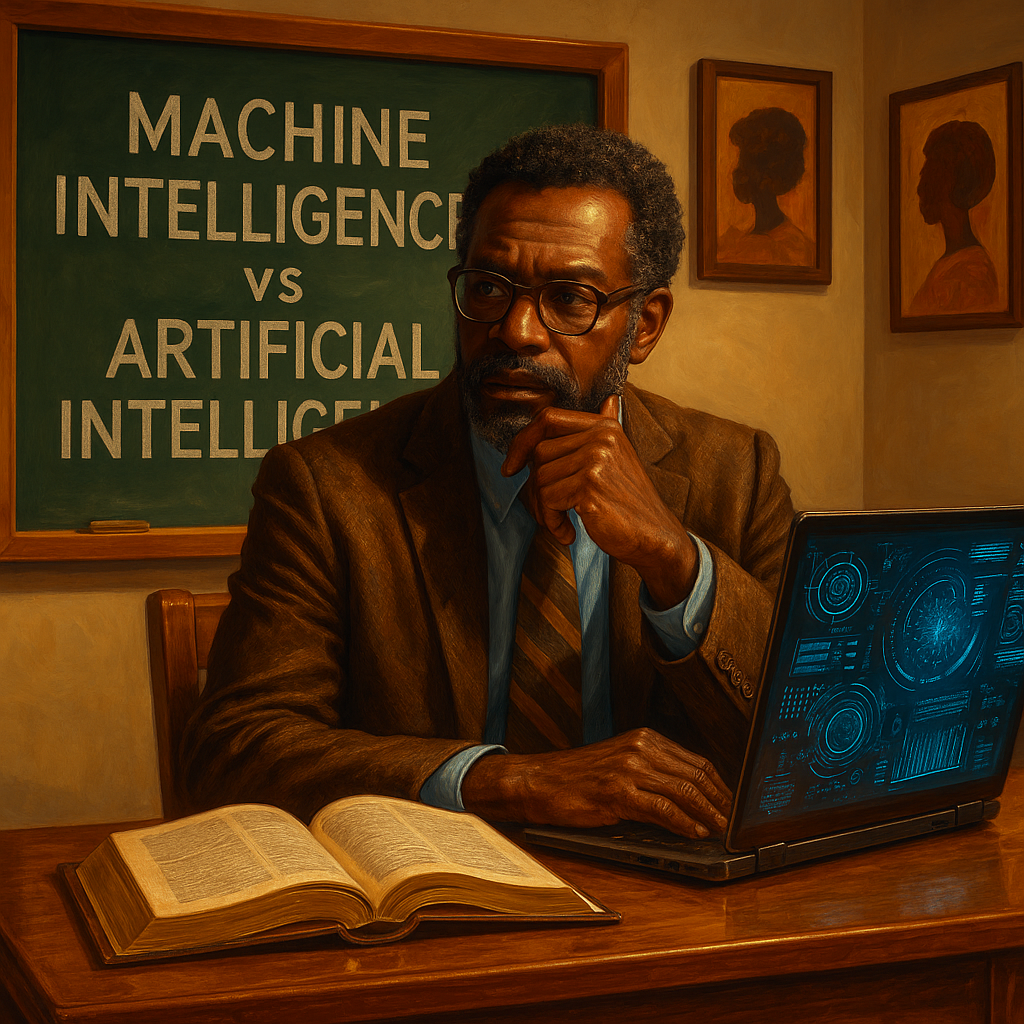The term “Artificial Intelligence” or “AI” is defined in this article to refer to any of the following:
(a) A form of technology involving the use of computers or computer-controlled robots to perform a wide range of tasks or functions that are commonly performed by humans in a more efficient and effective manner;
(b) The ability of computers or computer-controlled robots to perform a wide range of tasks or functions that are commonly performed by humans in a more efficient and effective manner; or
(c) The digital means by which computers or computer-controlled robots perform a wide range of tasks or functions that are commonly performed by humans in a more efficient and effective manner.
The tasks or functions alluded to above may include the operation of autonomous vehicles, diagnosis of diseases, performance of surgical procedures in hospitals, facial recognition, voice recognition, assembly and/or packaging of products, and, among many other tasks and functions, checking for plagiarized material in documents posted online.
In shorthand, AI, according to Goode (2024), is a form of technology by which “hardware [and software have] … ushered in a world where we talk to computers, they talk back to us, and eventually, depending on which technologist you talk to, they overtake us.”
In the words of Pazzanese (2020), it is a form of technology that is applied “across a vast array of industries, including healthcare, banking, retail, and manufacturing.” In the healthcare industry, as Ming (2029:46) has noted,
“AI technology … is expected to improve the accuracy and efficiency of medical diagnosis and treatment, provide patients with more convenient access to better medical services and relieve doctors from simple and repetitive tasks.”
There are numerous ethical issues and concerns associated with the application of AI—which includes machine learning, robotics, automation of production processes, automation of retail operations, and so forth—across commercial and industrial sectors of municipal and national economies. According to Michael Sandel, quoted by Pazzanese (2020),
“AI presents three major areas of ethical concern for society: privacy and surveillance, bias and discrimination, and perhaps the deepest [and] … most difficult philosophical question of the era, the role of human judgment.”
According to Thomas, Whitfield and Oppermann (2024), ethical issues and concerns associated with AI include the following: (a) automation-spurred job losses; (b) potential dissemination of fake news; (c) privacy violations resulting from AI-aided surveillance; and (d) socioeconomic inequalities emanating from racial biases fostered by the measurement of the traits of candidates for jobs through facial and voice analyses.
With respect to AI-spurred job losses, McKinsey Global Institute, quoted by Thomas, Whitfield and Oppermann (2024), has made the following prediction:
“By 2030, tasks that account for up to 30 percent of hours currently being worked in the U.S. economy could be automated—with Black and Hispanic employees left especially vulnerable to the change.”
Besides, AI, in the words of Fondrie-Teitler and Amritha (2023), “could be used by malicious actors to increase the scale or sophistication of existing scams … [and other fraudulent activities].” And, as Eliezer Yudkowsky, quoted by Marantz (2024), has argued,
“[A] … superintelligent machine could come to see us as a threat, and decide to kill us (by commandeering existing autonomous weapons systems, say, or by building its own [weapon systems]).”
In passing, let us consider the appropriateness of the term “Artificial Intelligence.”
Incidentally, the word “artificial” may be used to refer to anything that is false, fake, feigned, contrived, not natural, an imitation, or, among other things, is made by human work. As such, it is perhaps not an appropriate word or adjective to describe “the capability of computers to mimic human thought processes,” for example, as Agnes and others (2002:33) have defined AI.
Therefore, the term “Machine Intelligence” or “MI” could probably be a more appropriate and preferable alternative to the term “Artificial Intelligence.”
———————
Bibliography
Agnes, Michael, Editor in Chief, Webster’s New World Dictionary and Thesaurus, Second Edition (New York: Hungry Minds, Inc., 2002).
Fondrie-Teitler, Simon and Amritha, Jayanti, “Consumers Are Voicing Concerns About AI,” U.S. Federal Trade Commission:
https://www.ftc.gov/, October 3, 2023.
Goode, Lauren, “Nvidia Hardware Is Eating the World,” Wired:
https://www.wired.com/, February 23, 2024.
______, “The Nerd-King Vibes of Jensen Huang,” Wired, May / June 2024.
Marantz, Andrew, “O.K., Doomer: Will A.I. Extinguish the Human Race?” The New Yorker, March 18, 2024.
Ming, Xu, “What’s Ailing Medical AI?: Domestic Demand and Favorable Policies Have Generated Strong Financing for AI Technology in the Medical Sector, But Products and Patient Satisfaction Are Still Falling Short,” News China, February 2019, p. 46.
Pazzanese, Christina, “Great Promise But Potential for Peril: Ethical Concerns Mount As AI Takes Bigger Decision-Making Role in More Industries,” The Harvard Gazette:
https://news.harvard.edu/gazette, October 26, 2020.
Thomas, Mike, Whitfield, Brennan and Oppermann, Artem, “12 Risks and Dangers of Artificial Intelligence (AI),”https://builtin.com/artificial-intelligence/, March 2024.


